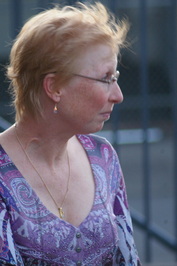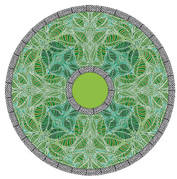
My friend Marcy Westerling has always been a truth-teller. Her blog, Livingly Dying, keeps the fact of her dying front and center, in the midst of her daily embrace of the life she loves. Thousands of readers around the world love her for it.
This month Yes Magazine published an essay by Marcy, "What I Learned About Living From Dying of Cancer." I offer this small taste of her piece with confidence that you will want to click below to read more, and in the hopes that you will share widely.
I chafe at being invisible as a person with cancer. I am a lifelong feminist and community organizer. I believe in breaking silence and sharing truth.... In 2014, I can choose to be visible. I have a tattoo on my wrist declaring me a “Cancer Warrior.” I sport buttons saying “Cancer Sucks.” I pedal everywhere, slowly, on a bike that announces “Cancer on Board.” I defy every attempt to limit me to my diagnosis as I dare the world to ignore it. When people with terminal diagnoses communicate about their experience, it may make their walking toward death more doable. I cannot think of subjects better suited for full honesty than birth and death. But sometimes I feel I am as isolated in shouting about my diagnosis as Rachel Carson [who hid her end-stage cancer in 1964 as she broke ground for the nascent environmental movement] was in secrecy. I look so good that observers may well conclude that the sign on my bike, the button on my bags, even the tattoo on my wrist represent strength and survival.
Public or private, silent or loud, the outcomes are the same. Disease creates isolation and barriers from the world of the well. A friend with terminal cancer notes, “We cause discomfort to some because we are living, living in acute awareness of our impending death, living in pain but living as fully as we can while we are dying. Should we lock ourselves away in a figurative darkened room so as not to chance disturbing the hale and hearty with thoughts of death?”...
People often say to the terminally ill, “You are so stoic, so graceful. I could never handle this so well.” Perhaps not. The truth is you have no idea how well or badly we, the dying, handle it.... The current rules of polite conversation make the journey toward death more challenging. One woman said to me, “It is like we are standing in a different room.” We are avoided or jollied up. (“You look so good you can’t be terminally ill” is the most hated and common of compliments.) These approaches insulate people in our culture from sitting with death, sadly but comfortably.
For more on my journey with Marcy, My Friend Marcy Has Cancer. I Don't (Yet).





 RSS Feed
RSS Feed